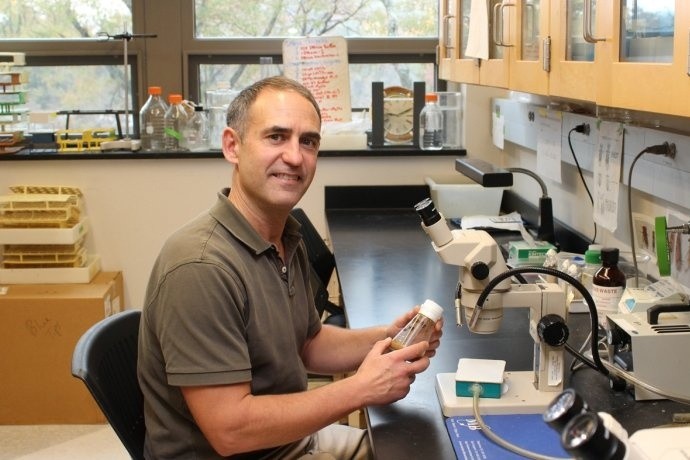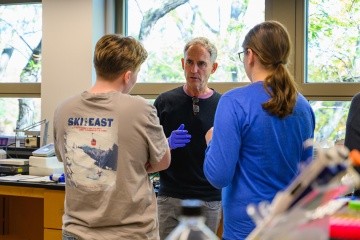
Dubbed the "Fly Room," Craig Woodard's laboratory is nearly always buzzing with activity. It's here that Woodard and his students breed the common fruit fly—Drosophila melanogaster—to study how steroid hormones affect animal development, analyzing genes that act to turn a fruit fly from a larva into an adult insect.
Says Woodard, "From what we learn we can make inferences about how genes are controlling the development and health of a human. By studying a model organism like a fruit fly we're learning the rules."
Woodard's research has been funded by the National Science Foundation (NSF), the Howard Hughes Medical Institute (HHMI), and the George I. Alden Trust.
The company of flies hasn't dampened Woodard's interest in other pursuits. When he isn't dissecting maggots, lecturing, or supervising his research assistants, Woodard might be found plunging down a mountain bike trail somewhere in the Holyoke Range. It's one of the passions he has managed to keep burning in his life as a teacher, researcher, husband, and father of two sons.
Woodard's findings on Drosophila metamorphosis have been published in journals such as Cell, Developmental Biology, and Developmental Dynamics.
Areas of Expertise
The control of gene expression and animal development by steroid hormones
Education
- Ph.D., M.Phil., M.S., Yale University
- B.S., Bates College

